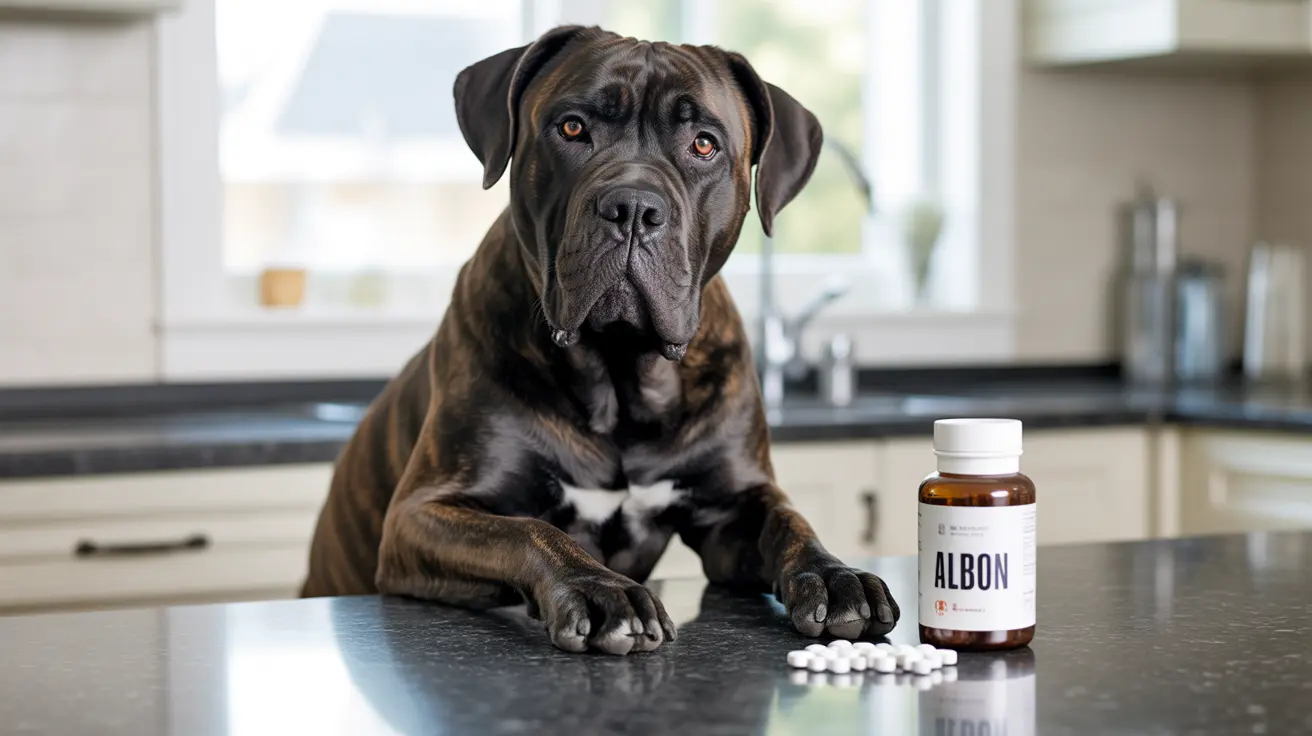If your veterinarian has prescribed Albon for your dog, you're likely wondering about this medication's purpose, proper dosing, and potential side effects. As a prescription sulfonamide antibiotic, Albon (sulfadimethoxine) plays a crucial role in treating various bacterial infections and parasitic conditions in dogs, particularly coccidiosis.
In this comprehensive guide, we'll explore everything pet owners need to know about Albon, from its primary uses to proper administration and safety considerations. Understanding this medication will help you ensure the best possible treatment outcome for your furry friend.
Understanding Albon and Its Uses
Albon is a prescription antibiotic specifically formulated for veterinary use. This FDA-approved medication works by inhibiting bacterial growth and reproduction, making it particularly effective against various infections affecting your dog's urinary tract, respiratory system, and gastrointestinal tract.
The medication comes in multiple forms, including tablets (125mg, 250mg, and 500mg) and a 5% oral suspension, allowing veterinarians to prescribe the most appropriate form based on your dog's size and specific needs.
Proper Dosing Guidelines
Correct dosing of Albon is crucial for effective treatment. The standard protocol involves a higher initial dose followed by lower maintenance doses:
- Initial dose: 25 mg per pound of body weight (55 mg/kg) on day one
- Maintenance dose: 12.5 mg per pound (27.5 mg/kg) for subsequent days
- Treatment typically continues for 3-5 days or until 48 hours after symptoms resolve
Your veterinarian will provide specific dosing instructions based on your dog's weight and condition. Never adjust the dosage without professional guidance.
Administration Tips and Best Practices
Administering Albon effectively requires attention to detail and consistency. Here are key points to remember:
- Give the medication at the same time each day
- Can be administered with or without food
- Ensure fresh water is always available
- Use a calibrated oral syringe for liquid formulations
- Complete the full course of treatment as prescribed
Monitoring and Side Effects
While Albon is generally well-tolerated, being aware of potential side effects is important. Common reactions may include:
- Decreased appetite
- Vomiting
- Diarrhea
- Possible allergic reactions in sensitive dogs
Monitor your dog closely during treatment and report any concerning symptoms to your veterinarian immediately. Some dogs may require additional supportive care or dosage adjustments.
Special Considerations and Precautions
Certain conditions require extra attention when using Albon:
- Dogs with liver or kidney disease may need modified dosing
- Pregnant or nursing dogs should only receive treatment when benefits outweigh risks
- Dogs with known sulfa drug allergies should not receive Albon
- Long-term use requires regular monitoring for potential complications
Frequently Asked Questions
What is Albon used for in dogs, and how does it work?
Albon is primarily used to treat bacterial infections and coccidiosis in dogs. It works by preventing bacteria from producing folic acid, which they need for survival and reproduction. It's particularly effective against infections in the urinary tract, respiratory system, and gastrointestinal tract.
What are the common side effects of Albon for dogs, and how can they be managed?
Common side effects include decreased appetite, vomiting, and diarrhea. These can often be managed by giving the medication with food and ensuring adequate hydration. If side effects are severe or persistent, contact your veterinarian.
How do I calculate the correct dosage of Albon for my dog based on their weight?
For the initial dose, multiply your dog's weight in pounds by 25 mg. For subsequent doses, multiply by 12.5 mg. For example, a 20-pound dog would receive 500 mg initially, then 250 mg for maintenance doses. Always follow your veterinarian's specific instructions.
Can Albon be used in dogs with pre-existing conditions, such as liver or kidney disease?
While Albon can be used in dogs with pre-existing conditions, dosage adjustments may be necessary. Your veterinarian will need to carefully monitor your dog's response to treatment and may adjust the dose or frequency accordingly.
How long does it typically take for Albon to start working in dogs, and when should I expect to see improvements?
Most dogs begin showing improvement within 24-48 hours of starting treatment. However, it's essential to complete the full course of medication as prescribed, even if symptoms improve. Treatment typically lasts 3-5 days but may be extended until the dog has been symptom-free for 48 hours.






